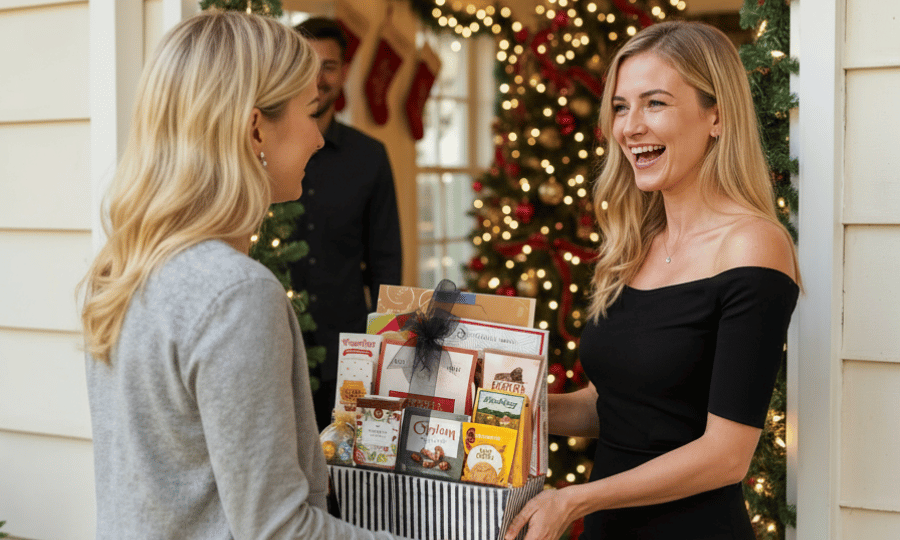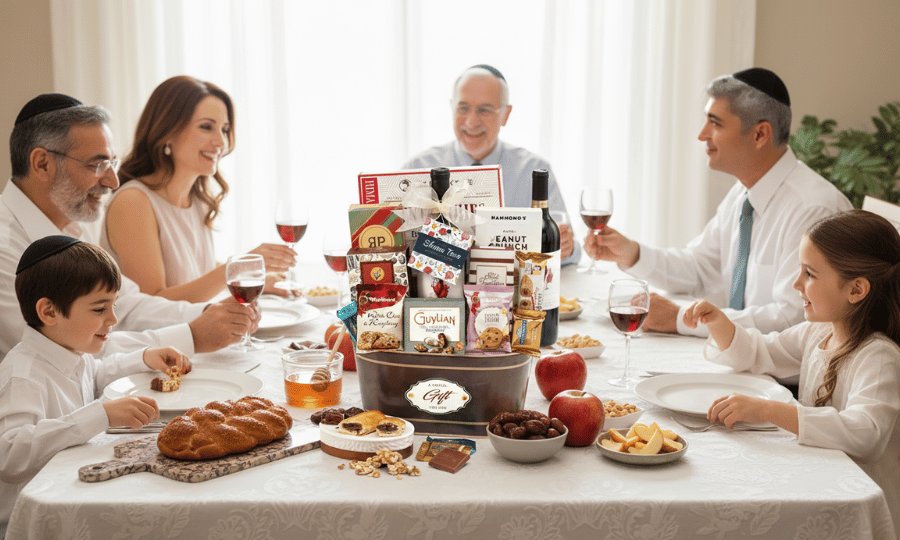At Broadway Basketeers, we exclusively offer kosher gift baskets. But have you ever wondered how kosher food is prepared?
What is “Kosher”?
“Kosher” is the common English translation for kashér, a Hebrew word that means “fit” or “appropriate” (more specifically, “fit for consumption”).
For food to be considered kosher, it needs to meet the dietary regulations that make up the law (halakha in Yiddish) found in the Torah. These laws were later developed by the Talmudic Rabbis to specifically form the dietary law (kashrut).
- Kosher meat (fleischig in Yiddish), which also refers to derivative products like fat and stock, that comes from animals and birds considered kosher
- Kosher dairy (milchig in Yiddish), which needs to come from a kosher animal and be properly stored
- Neutral (parev or pareve in Yiddish) food includes fish, eggs, fruits, and vegetables, but also needs to be properly prepared
- Not kosher (treif, which is Yiddish for “torn”) is a very broad description, but includes ingredients not permitted in kosher law as well as ingredients that would otherwise be considered kosher but have not been properly prepared
Kosher food preparation really does begin with only using the correct ingredients. So let’s take a quick look at the 3 main categories to see what makes an ingredient kosher or trief!
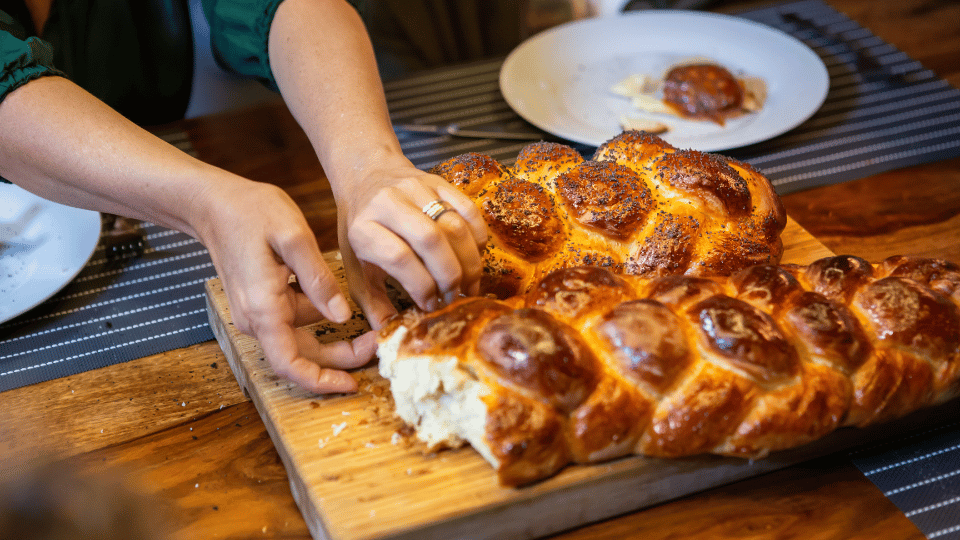
Kosher Ingredients
To be considered kosher, meat must come from a kosher animal. These include cows, sheep and goats, but always exclude pigs. Likewise, the Torah includes a list of domesticated birds considered kosher (which was added to by Talmudic Rabbis).
But very importantly, kosher animals have to be slaughtered by a shochet, someone who has been trained in schechita, or the kosher slaughter method.
The schochet must use a very sharp blade without any imperfections, to ensure the trachea and esophagus of the animal are properly cut. This causes the least amount of pain possible.
But it doesn’t stop there. The meat is thoroughly washed, sometimes even soaked, to remove all traces of blood. And only cuts of meat from the animal’s forequarters are considered kosher.
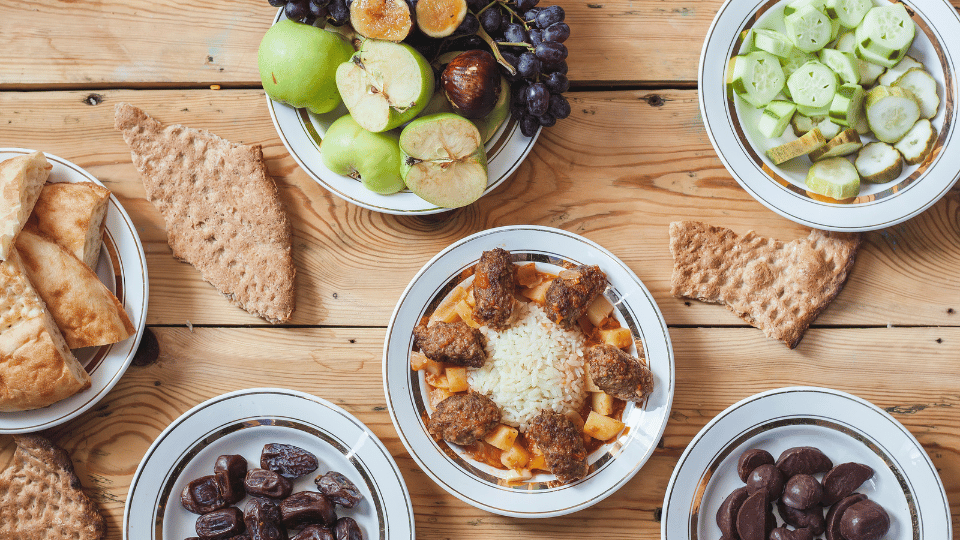
Fish and eggs (which are considered pareve or neutral) are given similar treatment to ensure there’s no blood remaining. Furthermore, for fish to be considered kosher, it must have fins and scales, such as salmon. And the eggs must come from a kosher bird!
Likewise, for dairy products to be kosher, they must be made from the milk of kosher animals. But they also need to be stored completely separate from any meat - which includes the equipment used to prepare and handle dairy products.
In kosher law, dairy and meat must always be separate, so they cannot be consumed together either. And this means some hard cheeses, which are processed gelatin or rennet, cannot be considered kosher.
Finally, we have plant-based foods, which are also considered pareve. To ensure they remain kosher, all fruits, vegetables, and herbs need to be thoroughly washed to get rid of bugs.
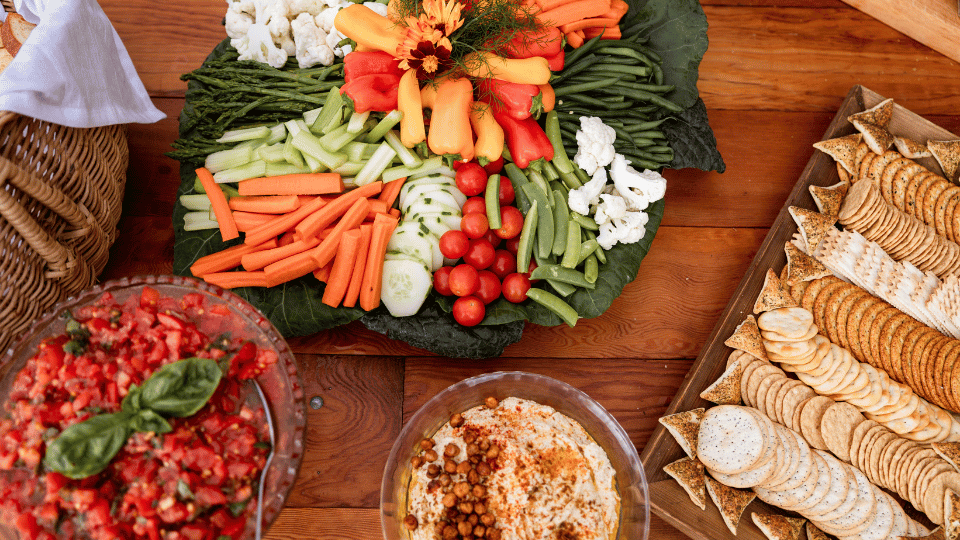
How Kosher Food is Prepared
Now that you know a little more about the basics of whether an ingredient is considered kosher or not, it’s time to dig deeper into the preparations and storage requirements.
As mentioned, dairy products must always be kept separate from meat products. When it comes to preparations, this includes using separate utensils and other equipment. But it also means the products need to be stored separately.
Jewish homes will often have more than one fridge to make this easier. However, you still need to be careful to always use the same Tupperware for the same food groups!
Neutral foods can be prepared with equipment that is also used for either meat or dairy products. However, as soon as you do so, that ingredient is no longer considered pareve, but rather as falling under either meat or dairy. This might seem confusing, but it’s to preserve the total separation of meat and dairy.
Very importantly, the equipment you use when preparing kosher foods needs to be very clean. This includes utensils, chopping boards, and the pots/pans you use. Generally speaking, they’ll be sanitized rather than simply washed.
Finally, for food to be considered kosher, it must be prepared under the hashgacha (“supervision”) of a mashgiach, who ensures all the kosher laws are being followed.
A mashgiach is someone who has been specifically trained in applying the kashrut to food preparation and reports to the Rav Hamachshir, a specially designated rabbi who oversees the Kashrus Administration or agency.
At Broadway Basketeers, all of our gourmet food gift baskets, towers and trays are certified by OK Kosher Laboratories under the supervision of Rabbi Don Yoel Levy!









